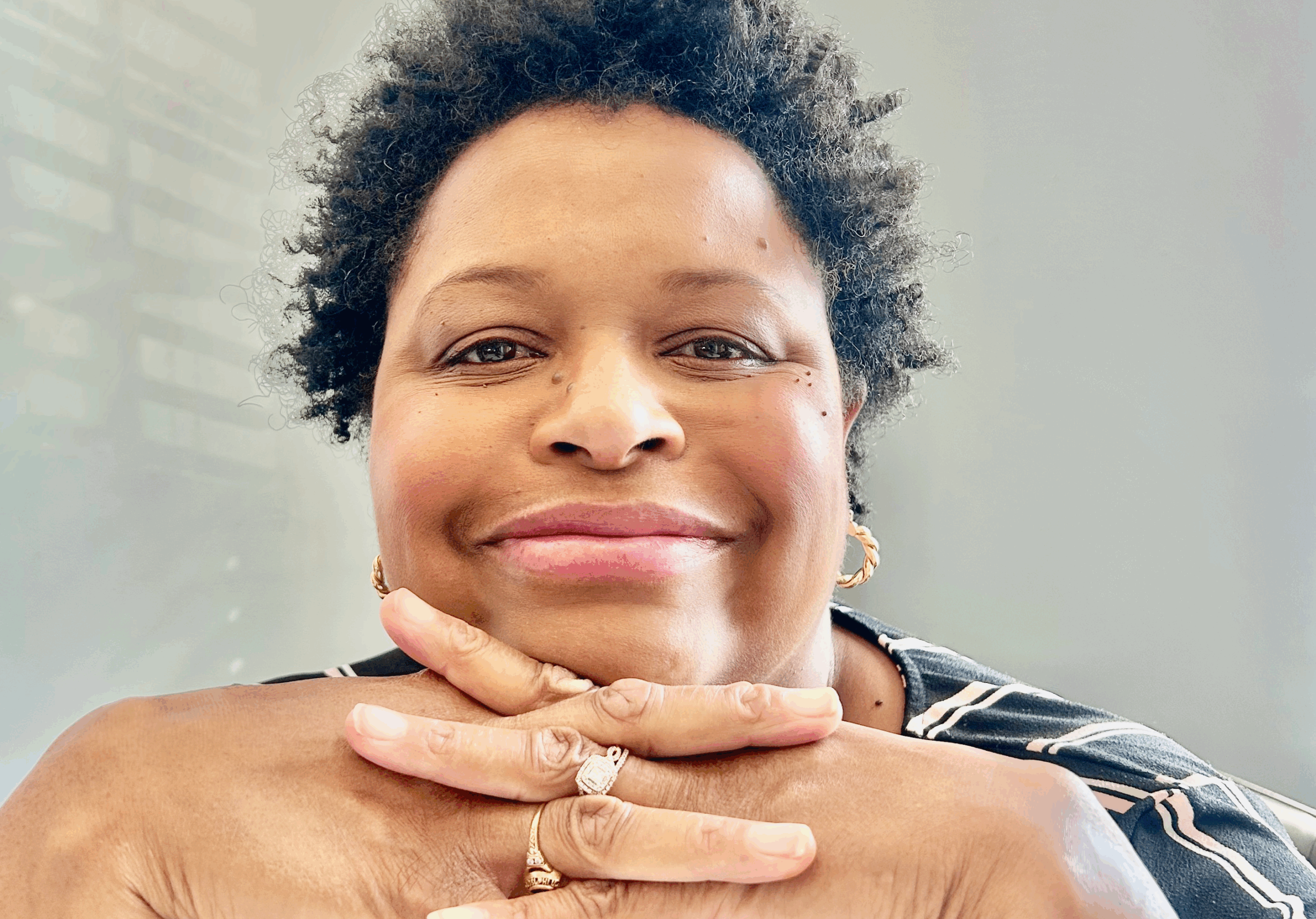
Published on Mar 11, 2024
Last modified on Dec 05, 2025
How to Ask For What You Want in Bed
7 min read

When it comes to sex, asking for what you need can be easier said than done. For a lot of people, sex is layered, and the thought of ruffling feathers in the bedroom might not seem worth it. We’re here to tell you that advocating for your sexual needs is 100% worth it.
Whether you are “playing the field” and seeing a new sexual partner(s), or are in a long-term relationship, you deserve to have a fulfilling and empowered sex life. Buuuut, unless your partner is a mind reader, they are not going to know exactly what you need to get you there. This is especially true during and after menopause, which we know which can impact orgasms and arousal. Here are our key strategies for making it happen:
1. Get to know what you like (and dislike). 🔬
Before asking your partner for something different in bed, it’s helpful to get specific on your needs. This is where research can come in handy. Sex podcasts, erotica, and porn are all great places to look for inspiration. Here are some of our favorite resources for each:
- Listening: Explore apps Quinn & Dipsea for sexy audio and podcasts Dirty Diana and Dying for Sex for more narrative series.
- Reading: Fifty Shades of Grey broke the internet for a reason, but if you’re interested in something newer, Penguin Random House has a great list.
- Watching: Check out Bellesa and MakeLoveNotPorn (read our interview with Cindy Gallop, the CEO of MakeLoveNotPorn here!)
Don’t forget during research, you are your primary source!
Accompanying reading/listening/watching with solo sex is a great way to explore what really gets you going. If you’re a fan of vibrators and other accessories, check out these Black-owned sexual wellness brands reimagining pleasure.
Elektra Guide Beth Braun has some words of advice on sexual self-exploration:
“It has taken me my lifetime to figure out what I like in bed and how to get there. Each sexual partner has offered their own sexual dance to groove with. I have been with gracious partners, open partners, greedy partners. I’ve had negative experiences along the way but ultimately mainly fun and accommodating ones.
Personally, I have most enjoyed being with partners who are more experienced than myself, who have encouraged me to try new, safe things to push my boundaries. I am grateful for partners who are sensual, take their time, enjoy sex as a pleasure seeking hobby, who are caring, fun, forgiving and accepting. I want love making to be mutually satisfying, mutually orgasmic, authentic, varied, playful and mind blowing.
I have used the books by Ian Kerner (She Comes First and Passionista to name a couple), and more recently the newest book by Emily Nagoski (Come Together: The Science (and Art!) of Creating Lasting Sexual Connections) to use as references, validation and how-to guides to help myself and my partner get our groove on as best as possible.”
It has taken me my lifetime to figure out what I like in bed and how to get there. Each sexual partner has offered their own sexual dance to groove with. I have been with gracious partners, open partners, greedy partners. I’ve had negative experiences along the way but ultimately mainly fun and accommodating ones.
2. Stop performing. 🛑 🎭
Hey—we get it. We all have performed pleasure at one point or another, whether that’s smiling when we don’t feel like it or moaning during sex when it really doesn’t feel that good. As women, we are taught from a young age to put the wellbeing of others before our own and not to be too noisy about our needs, lest we be called “needy” or “high maintenance.” 🙄
Of course, this social conditioning follows us right into the bedroom. Our performance of pleasure doesn’t always look as extreme as, say, a fake orgasm, the rates of which are thankfully down according to a recent study (around 59% of female respondents reported having faked an orgasm in the past, but around 67% of those who had done so in the past no longer did). Sometimes, it’s pretending to be into positions we don’t actually like or acting into receiving oral sex when we don’t really enjoy it.
Sexologist Emily Morse refers to this as “Performative Receiving,” a behavior defined as “when you pretend to enjoy oral sex for the sake of your partner, rather than prioritize your own pleasure.”
This doesn’t apply only to oral, but any exchange where we women act like we enjoy something we don’t because we think it will make our partners feel good. The problem with performing is that it gives our partners the wrong idea about what we like, and doesn’t allow them to learn from our body language and other cues.
3. Know when to ask. ⏱️
As with most sensitive conversations, timing is everything, and knowing when to ask for something in bed is just as important as knowing how. If your request is something like a different sex position or change of rhythm, asking in the heat of the moment is totally fine AND can be a big turn-on. You can even try incorporating your ask as dirty talk during foreplay by sharing what you want your partner to do during sex.
If you’re talking about something entirely new, asking ahead of time is best. Plan ahead for a neutral time to initiate the conversation, like over dinner or on a picnic date, when you are both in good spirits and feeling emotionally connected. You can also take a page out of Beth’s book and talk it out on a road trip:
“My boyfriend and I occasionally take driving road trips and to pass the time I bring some sex books along and we read them aloud to one another, a couple chapters at a time. Then we discuss what we’ve read. If we have read from a sex expert about positive experiences that they have had with new ideas, then we feel more comfortable and open to trying them in our future, rather than saying a quick no.
We don’t pressure one another and we seek mutual consent in these discussions rather than in bed — It’s like a planning meeting! This way there aren’t surprises in bed. Talking about sex at a non-sexual time treats our lovemaking with time and respect and serves as erotic excitement for when we reach our destination.”
We don’t pressure one another and we seek mutual consent in these discussions rather than in bed — It’s like a planning meeting! This way there aren’t surprises in bed. Talking about sex at a non-sexual time treats our lovemaking with time and respect and serves as erotic excitement for when we reach our destination.
READ MORE: How To Talk To Your Partner About Libido
4. Open with praise. 🙌
As important as open communication is around sex, the topic is, for better or worse, often tied up with emotions. That’s why we recommend starting with a piece of praise – tell your partner what they do well or how much you appreciate your physical relationship. Beginning the conversation on a positive note will help get in front of any feelings of defensiveness or hurt.
5. Be patient. 😌
Introducing new elements to the bedroom doesn’t always happen in a vacuum. Your partner may need time to think about what you’re asking for, especially if you are introducing a more sensitive element like kink — and even if they are down, it will probably take a few tries to get it right.
If you’re trying something new out, try not to focus too much on the outcome and focus instead on fostering connectedness with your partner. Maybe you’re trying out role play for the first time and it just feels, well, silly — it’s okay to laugh!
6. Return the favor. ⏪
In addition to offering a nugget of praise, it’s important to reciprocate and give your partner a chance to talk about their needs. This doesn’t mean giving up the floor completely—this conversation is still about your pleasure, ahem—but offering your partner space to talk about their sexual desires. Sexual communication is a two-way street, and making your partner’s wants a priority can encourage them to prioritize yours.
7. Know when to bring in an expert. 👩🏻⚕️
If you’ve tried all of the steps above and feel like your partner isn’t hearing you, it may be time to consider seeing an expert. The good news is the sexual wellness industry is booming, and there are many resources for people looking for support in the bedroom, such as sex therapy and counseling:
- Sex therapists are licensed providers that can help individuals or couples work through sexual difficulties through the use of evidence-based psychotherapy techniques, usually through a series of sessions.
- Sex counselors can also help individuals and couples work through intimacy issues by providing actionable suggestions, and typically see clients on more of a short term basis.
READ MORE:



